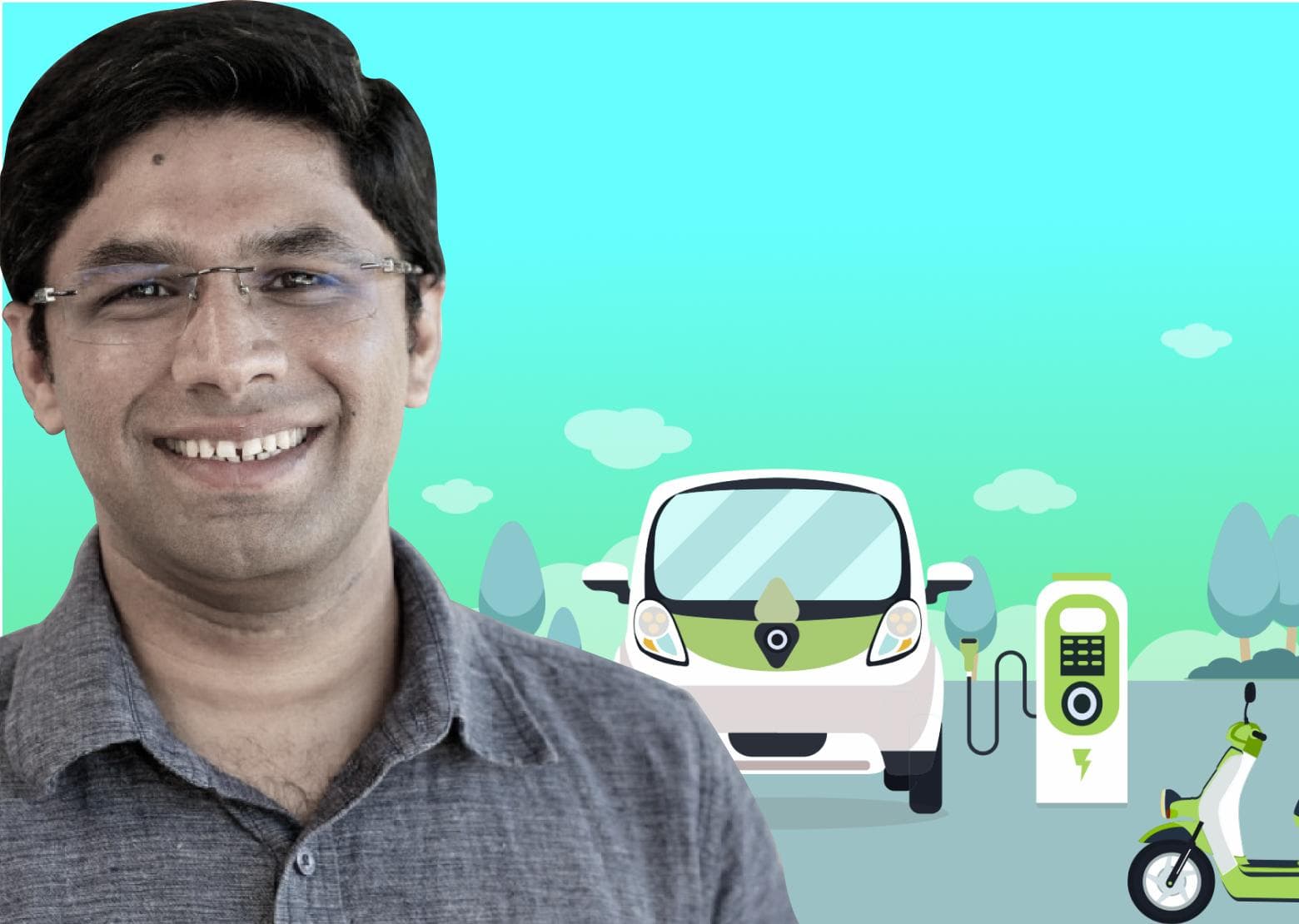Charging Ahead in the Green Energy Race
From E-Rickshaws to Electric Cars: Exploring India's Green Vehicle Transformation and Growing EV Market

India's strides towards championing the Global South's advancement are drawing global focus, with an emphasis on economic upliftment and climate crisis. Central to this pursuit is India's drive towards electric vehicles (EVs), a critical move in reducing emissions and achieving its ambitious 2070 net-zero goal. This transition marks a significant shift from fossil fuels to EVs, not just reducing greenhouse gases but also curbing ozone-depleting emissions. India's commitment to EVs is more than an environmental gesture; it's a step towards renewable energy on a grand scale, cementing its role as a frontrunner in global environmental conservation.
India's Unique EV Market: Beyond Cars
In India, the electric vehicle (EV) landscape diverges from Western trends, with two and three-wheelers dominating the market, adding complexity to the adaptation and manufacturing of EVs. The two-wheeler segment, leading in sales, began its electric journey with low-speed models and is now advancing towards higher quality, high-speed electric two-wheelers. The 2022-23 period saw a substantial 160% increase in electric two-wheeler sales, hitting 846,976 units, of which 726,976 were high-speed models.
Three-wheelers, widely used for urban transportation of people and goods, are also joining the electric revolution. Over half of all three-wheeler registrations in India in 2022 were electric, driven by lower life-cycle costs and government incentives. While a large portion of these are e-rickshaws, there's untapped potential in electric auto-rickshaws, crucial for sustainable urban development. India also faces challenges in ensuring passenger safety and proper licensing in this rapid electrification process.
The electric car segment in India, led by key players like Tata and Mahindra, is experiencing growth despite price barriers. Affordable models like the Tata Tiago are essential for broader market penetration. The electric car market in India, along with Thailand and Indonesia, saw significant growth in 2022, with collective sales tripling compared to the previous year. India's push in EV manufacturing is bolstered by a USD 3.2 billion government incentive program, attracting investments of USD 8.3 billion, as highlighted in the Global EV Outlook Report 2023. This comprehensive approach underscores India's commitment to transitioning towards a more sustainable and electric future in transportation.
Infrastructure Development: Charging Ahead
As the world's third-largest automotive market, with vehicle sales reaching approximately 4.25 million units in 2022, India is poised to set a global example in transitioning to emission-free vehicles. The nation's automotive original equipment manufacturers (OEMs) and component manufacturers are already well-integrated into the global ecosystem, opening pathways for research, development, and innovation in the industry.
In terms of infrastructure development, the focus, as it should, is on simultaneously manufacturing vehicles and establishing charging stations. This dual approach tackles the classic 'chicken and egg' dilemma in EV adoption, creating a symbiotic growth of EVs and charging infrastructure. The Indian auto component industry's record turnover of $69.7 billion in 2022-23, expected to reach $200 billion by 2026, presents a substantial opportunity for India to enhance its manufacturing capabilities, following the lead of companies like TATA Motors, Mahindra Electric, and Okinawa.
Public EV charging infrastructure is gradually expanding, particularly in major cities. Despite the cautious approach due to the current modest share of EVs in the fleet, progressive policies like New Delhi's recent aggregator policy are driving change. This policy mandates a significant percentage of new vehicle fleets to be electric, phased in over a few years, incentivizing charging infrastructure development and boosting EV fleet numbers.
State-level EV charging tariffs and incentive schemes lay the groundwork for large-scale EV adoption. Innovative local incentives, like shopping points for mall visitors charging their EVs, encourage personal EV use. Additionally, India's building code, mandating 20% EV charging space in new residential constructions, addresses potential buyers' concerns about charging availability.
The success of affordable EV models like the MG Comet in India demonstrates consumer willingness to embrace EVs that meet their requirements. The challenge lies in fostering a market environment that encourages innovation and technology development, tailored to the unique needs of Indian consumers. A strong regulatory push on the supply side, coupled with clear consumer benefits, is key to transforming India's EV market.
Startups, Innovations, and market growth
Startups are pivotal in enhancing India's electric vehicle (EV) landscape through their dynamic innovation and speed. Indian startups like Aether, Alti Green, and Log9 are leading the way with their development of cost-effective retrofit kits and advanced battery technologies. The Indian government has significantly contributed to nurturing a conducive environment for these startups, offering tax incentives, a variety of schemes, and extensive outreach programs. However, the real game-changer will be a supportive regulatory framework that boosts investment, diminishes market uncertainties, and paves the way for startup growth and innovation.
There's a vast potential in India's non-metropolitan areas, especially with the rising popularity of e-rickshaws in tier two and tier three cities that the governments have started to look into. These areas present a ripe opportunity for the widespread adoption of EV solutions, along with a collaboration between startups, established industry leaders, and policymakers.
Strategic Policies: Shaping the EV Market
India is on a fast track to revolutionise its EV sector, aiming for substantial market penetration by 2030. Supported by its dynamic demographic, skilled workforce, expanding market size, and emerging status as a manufacturing hub influenced by global geopolitical shifts, India's EV sector is poised for remarkable growth. The government's EV30@30 campaign aims to ensure that 30% of new vehicle sales are electric by 2030, a goal supported by projections from Bain & Co., which estimate electric two-wheelers to account for 40-45% of all EVs sold in India by 2030, with electric passenger vehicles making up 15-20%.
However, India's vision extends even further. Niti Aayog's report sets an even higher bar, targeting 40% adoption for buses, 30% for private cars, 70% for commercial vehicles, and 80% for two-wheelers within the same timeframe. The Economic Survey of India 2023 predicts a robust 49% compound annual growth rate in the domestic EV market from 2022 to 2030, anticipating annual sales of 10 million units by 2030. This explosive growth is expected to generate around 50 million direct and indirect job opportunities over the next seven years.
In its pursuit of self-reliance, the Indian government is championing the 'Make in India' initiative to achieve 100% local EV production. With the industry still in its nascent stage, there lies a golden opportunity for industry leaders to collaboratively forge a comprehensive growth strategy. Taiwanese manufacturer Foxconn's recent announcement to establish a two-wheeler EV production line in India underscores the country's growing global attraction in the EV market. This concerted effort is set to establish India as a leading global hub for EV manufacturing, leveraging its skilled workforce and vast market potential to become a frontrunner in the global EV industry.

Aditya Ramji 🇺🇸
Deep Dive
Report: Electric vehicles are poised to create a $100B+ opportunity in India by 2030
Government Policy: GST on electric vehicles was reduced from 12 to 5% and GST on EV chargers and charging stations has been reduced from 18 to 5%
Why invest? EV segment's volumes set to cross annual sales of 16 Mn units by 2030.
Growing numbers: Between Jan 1, 2023 and March 15, 2023, India reported registration of 2,56,980 electric vehicles.
Manufacturing: India is set to manufacture 5 Lakh EV three wheelers, at least 55,000 EV four wheelers and 7000 EV buses by 2024.


































